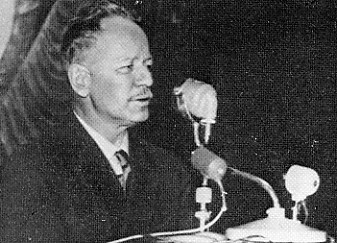 presents |
SPEECH TO THE 20TH CONGRESS OF THE COMMUNIST PARTY OF THE SOVIET UNION
by
Mikhail A. Sholokhov
(1956)
presents
SPEECH TO THE 20TH CONGRESS OF THE COMMUNIST PARTY OF THE SOVIET UNION
by
Mikhail A. Sholokhov
(1956)
 |
|
107 Years of Sholokhov see also: Biography of Mikhail Sholokhov |
